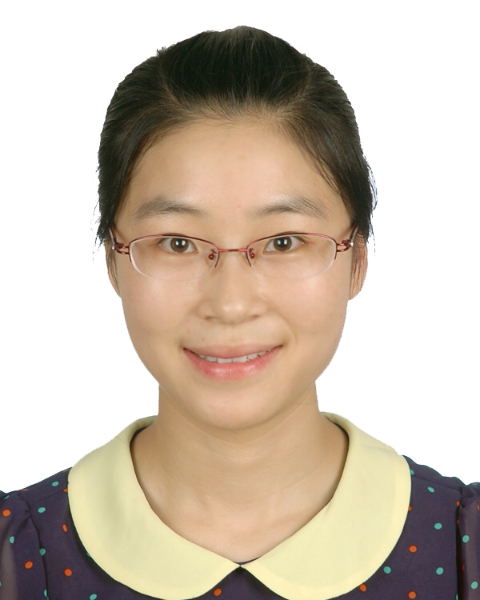PQA 07 - PQA 07 Gastrointestinal Cancer and Sarcoma/Cutaneous Tumors Poster Q&A
3032 - Tumor Immune Microenvironment Remodeling and Prognosis of Patients with Esophageal Squamous Cell Carcinoma after Neoadjuvant Chemotherapy with and without Immunotherapy
Tuesday, October 1, 2024
12:45 PM - 2:00 PM ET
Location: Hall C
Screen: 12

Lihong Liu, MS
Shijiazhuang, Heibei
Presenter(s)
L. Liu1, Y. Liu2, L. Xu1, Y. Ding2, C. Han1, and L. Wang1; 1Department of Radiation Oncology, the Fourth Hospital of Hebei Medical University, Shijiazhuang, Hebei, China, 2Department of Pathology, the Fourth Hospital of Hebei Medical University, Shijiazhuang, Hebei, China
Purpose/Objective(s): We aimed to investigate the outcomes of neoadjuvant chemotherapy with and without immunotherapy in tumor microenvironment (TME) remodeling among patients with esophageal squamous cell carcinoma (ESCC) and to evaluate the prognostic value of immune-related biomarkers and clinicopathological characteristics in these patients. Materials/
Methods: Retrospectively reviewed the data of patients with ESCC who received neoadjuvant chemotherapy, with or without immunotherapy (nCT and nICT groups, respectively), from December 2019 to March 2022 in the Fourth Hospital of Hebei Medical University. Histopathology specimens of cancer tissue before and after treatment were examined for TME features and immune antigen-related biomarkers. These results, together with patient clinical information, were analyzed to explore the associations with surgical outcomes and disease-free survival. Logistic and Cox regression model analyses were performed to screen for factors associated with patient prognosis.
Results: A total of 50 patients underwent R0 resection, with rates of pathological complete response (pCR) and major pathological response (MPR) of 18% and 30%, respectively. Rates of pCR were 7.1% and 22.2% (?2=0.699, P=0.403) and those of MPR were 7.1% and 38.9% (?2=4.837, P=0.028) in the nCT and nICT groups, respectively. Compared with the non-pCR patients, the pCR patients had a higher baseline programmed cell death ligand-1 (PD-L1) tumor proportion score (TPS) positive expression rate (16.7% vs. 77.8%, ?2=13.089, P<0.001). Comparing TME features before and after neoadjuvant treatment, an increase expression rates of PD-L1, CD3+ T cells, and CD8+ T cells in the tumor tissue were observed after neoadjuvant treatment, with more significantly increased expressions in the nICT group than in the nCT group (P<0.05). Deficient expression of mismatch repair genes were only observed in one patient (2%) . Among patient-related biomarkers, lymphocyte and neutrophil counts decreased after treatment, with no significant changes in the neutrophil-to-lymphocyte ratio and platelet-to-lymphocyte ratio. Cox regression analysis showed that pre-treatment well-differentiated tumors and positive PD-L1 were favorable factors for MPR (P<0.05). Post-treatment MPR was an independent factor affecting disease-free survival (P=0.029).
Conclusion: Neoadjuvant chemotherapy with and without immunotherapy could upregulate the PD-L1 protein expression level, increase tumor-infiltrating lymphocytes, and remodel the tumor immune microenvironment in patients with ESCC. Neoadjuvant immunochemotherapy could more significantly upregulate PD-L1, CD3+ T cells, and CD8+ T cells. Pre-treatment tumor differentiation and PD-L1 level could predict pathological remission. Compared with neoadjuvant chemotherapy, neoadjuvant immunochemotherapy achieved a higher MPR rate.
Purpose/Objective(s): We aimed to investigate the outcomes of neoadjuvant chemotherapy with and without immunotherapy in tumor microenvironment (TME) remodeling among patients with esophageal squamous cell carcinoma (ESCC) and to evaluate the prognostic value of immune-related biomarkers and clinicopathological characteristics in these patients. Materials/
Methods: Retrospectively reviewed the data of patients with ESCC who received neoadjuvant chemotherapy, with or without immunotherapy (nCT and nICT groups, respectively), from December 2019 to March 2022 in the Fourth Hospital of Hebei Medical University. Histopathology specimens of cancer tissue before and after treatment were examined for TME features and immune antigen-related biomarkers. These results, together with patient clinical information, were analyzed to explore the associations with surgical outcomes and disease-free survival. Logistic and Cox regression model analyses were performed to screen for factors associated with patient prognosis.
Results: A total of 50 patients underwent R0 resection, with rates of pathological complete response (pCR) and major pathological response (MPR) of 18% and 30%, respectively. Rates of pCR were 7.1% and 22.2% (?2=0.699, P=0.403) and those of MPR were 7.1% and 38.9% (?2=4.837, P=0.028) in the nCT and nICT groups, respectively. Compared with the non-pCR patients, the pCR patients had a higher baseline programmed cell death ligand-1 (PD-L1) tumor proportion score (TPS) positive expression rate (16.7% vs. 77.8%, ?2=13.089, P<0.001). Comparing TME features before and after neoadjuvant treatment, an increase expression rates of PD-L1, CD3+ T cells, and CD8+ T cells in the tumor tissue were observed after neoadjuvant treatment, with more significantly increased expressions in the nICT group than in the nCT group (P<0.05). Deficient expression of mismatch repair genes were only observed in one patient (2%) . Among patient-related biomarkers, lymphocyte and neutrophil counts decreased after treatment, with no significant changes in the neutrophil-to-lymphocyte ratio and platelet-to-lymphocyte ratio. Cox regression analysis showed that pre-treatment well-differentiated tumors and positive PD-L1 were favorable factors for MPR (P<0.05). Post-treatment MPR was an independent factor affecting disease-free survival (P=0.029).
Conclusion: Neoadjuvant chemotherapy with and without immunotherapy could upregulate the PD-L1 protein expression level, increase tumor-infiltrating lymphocytes, and remodel the tumor immune microenvironment in patients with ESCC. Neoadjuvant immunochemotherapy could more significantly upregulate PD-L1, CD3+ T cells, and CD8+ T cells. Pre-treatment tumor differentiation and PD-L1 level could predict pathological remission. Compared with neoadjuvant chemotherapy, neoadjuvant immunochemotherapy achieved a higher MPR rate.
